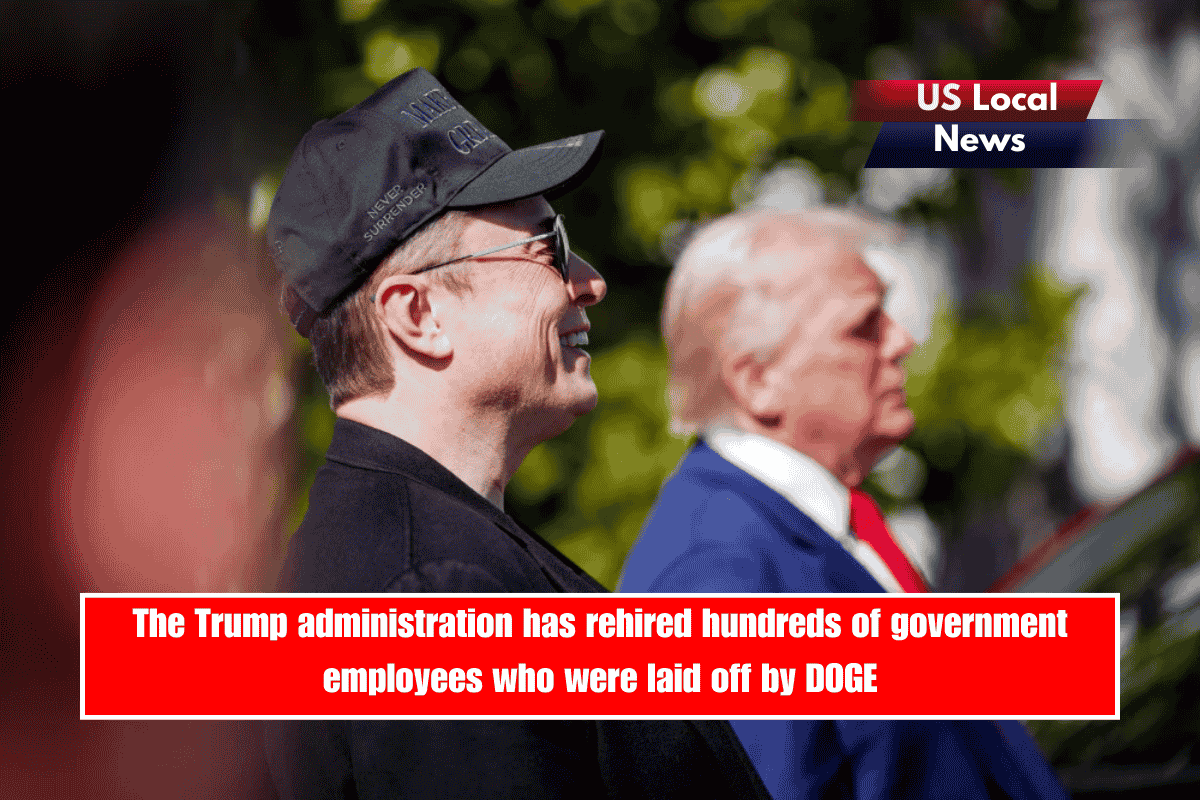MIAMI — Hundreds of federal employees who were laid off during Elon Musk’s cost-cutting campaign are being asked to return to work.
The General Services Administration has given the employees who manage government workspaces until the end of the week to accept or decline reinstatement, according to an internal memo obtained by The Associated Press. Those who accept must report for duty on Oct. 6 after a seven-month paid vacation during which the GSA incurred high costs — passed on to taxpayers — to stay in dozens of properties whose leases it had scheduled to terminate or allowed to expire.
“Ultimately, the outcome was the agency was left broken and understaffed,” said Chad Becker, a former GSA real estate employee. “They didn’t have the people they needed to carry out basic functions.”
Becker, who represents owners with government leases at Arco Real Estate Solutions, claims GSA has been in “triage mode” for months. He said the abrupt reversal of the downsizing reflects Musk and his Department of Government Efficiency going too far, too quickly.
The GSA was founded in the 1940s to centralize the acquisition and management of thousands of federal workplaces. Its return-to-work request is consistent with rehiring efforts at several agencies targeted by DOGE. Last month, the IRS announced that it would allow some employees who accepted a resignation offer to stay on the job. The Labor Department has also reinstated some employees who accepted buyouts, while the National Park Service previously reinstated a number of purged employees.
The GSA is critical to the work of such agencies because it manages many of the buildings. Starting in March, thousands of GSA employees left the agency as part of programs encouraging them to resign or retire early. Hundreds of others — those subject to the recall notice — were let go as part of an aggressive effort to reduce the size of the federal workforce. Even though those employees did not show up for work, some continue to be paid.
GSA representatives did not respond to detailed questions about the return-to-work notice, which was issued Friday. They also declined to discuss the agency’s headcount, staffing decisions, or the potential cost overruns associated with reversing its lease termination plans.
“GSA’s leadership team has reviewed workforce actions and is making adjustments in the best interest of the customer agencies we serve and the American taxpayers,” the agency’s spokesman wrote in an email.
Democrats have criticized the Trump administration for its indiscriminate approach to cutting costs and jobs. Rep. Greg Stanton of Arizona, the top Democrat on the GSA subcommittee, told the Associated Press that there is no evidence that reductions at the agency “delivered any savings.”
“It’s created costly confusion while undermining the very services taxpayers depend on,” said Mr. Trump.
DOGE identified the agency, which had approximately 12,000 employees at the start of the Trump administration, as a key target in its campaign to reduce federal government fraud, waste, and abuse.
A small group of Musk’s trusted advisers remained at GSA headquarters, sometimes sleeping on cots on the agency’s sixth floor, and pursued plans to abruptly cancel nearly half of the 7,500 leases in the federal portfolio. DOGE also wanted GSA to sell hundreds of federally owned buildings, with the goal of saving billions of dollars.
GSA began by sending over 800 lease cancellation notices to landlords, often without informing the government tenants. The agency also released a list of hundreds of government buildings that were up for sale.
The response to GSA’s dumping of its portfolio was swift, and both initiatives have been scaled back. More than 480 leases that were scheduled for termination by DOGE have since been spared. These leases were for offices scattered across the country, occupied by agencies such as the Internal Revenue Service, Social Security Administration, and Food and Drug Administration.
DOGE’s “Wall of Receipts,” which once claimed that lease cancellations alone would save nearly $460 million, has since been reduced to $140 million by the end of July, according to Becker, a former GSA real estate official.
Meanwhile, GSA implemented massive job cuts. The administration reduced GSA’s headquarters staff by 79%, portfolio managers by 65%, and facilities managers by 35%, according to a federal official briefed on the matter. The official, who was not authorized to speak with the media, provided the statistics under the condition of anonymity.
As a result of the internal turmoil, 131 leases expired without the government actually vacating the properties, according to the official. The situation has subjected the agencies to high fees because property owners have been unable to rent out those spaces to other tenants.
The public may soon have a better understanding of what happened at the agency.
The Government Accountability Office, an independent congressional watchdog, is investigating the GSA’s workforce management, lease terminations, and planned building disposals and plans to release findings in the coming months, according to David Marroni, a senior GAO official.









